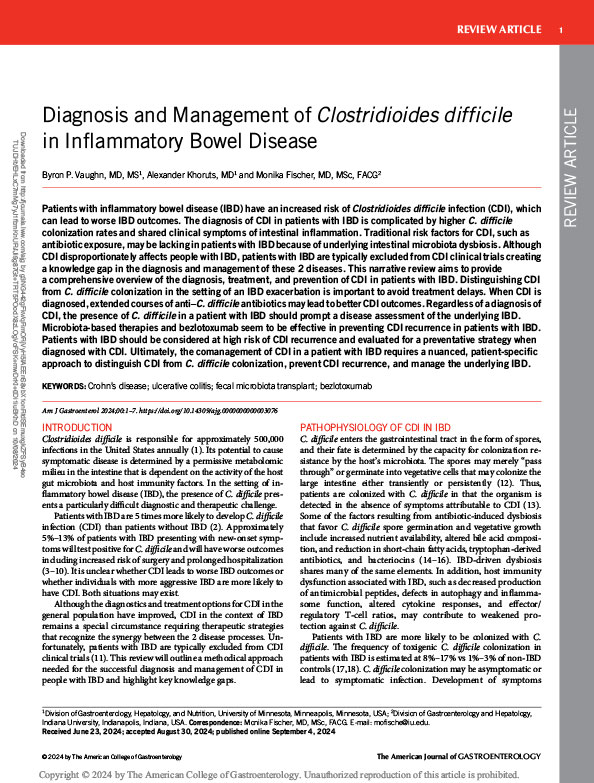Diagnosis and Management of Clostridioides difficile in Inflammatory Bowel Disease
September 2024
The American Journal of Gastroenterology
Abstract
Patients with inflammatory bowel disease (IBD) have an increased risk of Clostridioides difficile infection (CDI), which can lead to worse IBD outcomes. The diagnosis of CDI in patients with IBD is complicated by higher C. difficile colonization rates and shared clinical symptoms of intestinal inflammation. Traditional risk factors for CDI, such as antibiotic exposure, may be lacking in patients with IBD because of underlying intestinal microbiota dysbiosis. Although CDI disproportionately affects people with IBD, patients with IBD are typically excluded from CDI clinical trials creating a knowledge gap in the diagnosis and management of these 2 diseases. This narrative review aims to provide a comprehensive overview of the diagnosis, treatment, and prevention of CDI in patients with IBD. Distinguishing CDI from C. difficile colonization in the setting of an IBD exacerbation is important to avoid treatment delays. When CDI is diagnosed, extended courses of anti–C. difficile antibiotics may lead to better CDI outcomes. Regardless of a diagnosis of CDI, the presence of C. difficile in a patient with IBD should prompt a disease assessment of the underlying IBD. Microbiota-based therapies and bezlotoxumab seem to be effective in preventing CDI recurrence in patients with IBD. Patients with IBD should be considered at high risk of CDI recurrence and evaluated for a preventative strategy when diagnosed with CDI. Ultimately, the comanagement of CDI in a patient with IBD requires a nuanced, patient-specific approach to distinguish CDI from C. difficile colonization, prevent CDI recurrence, and manage the underlying IBD.

